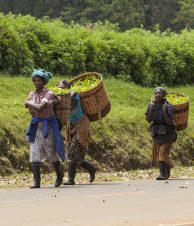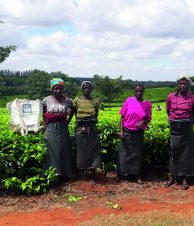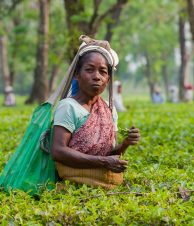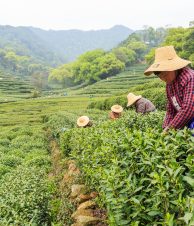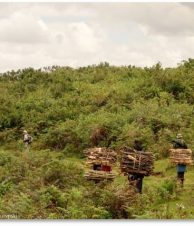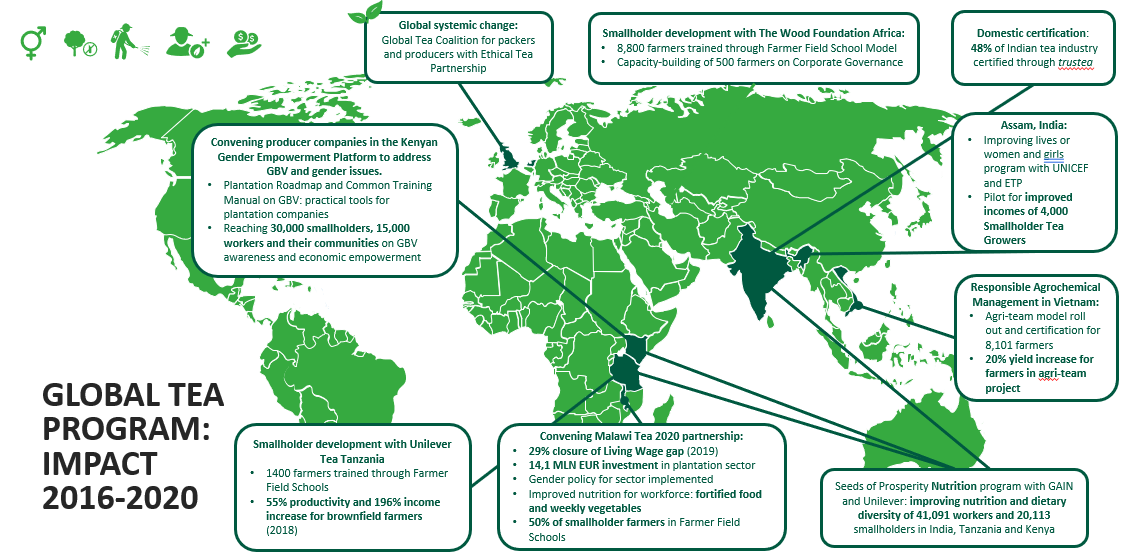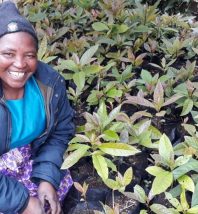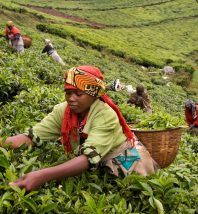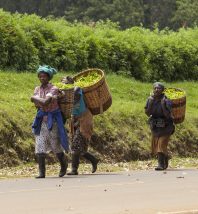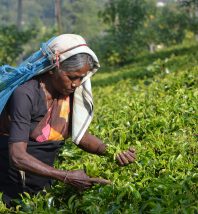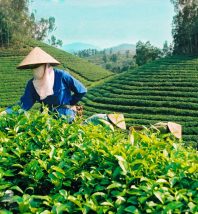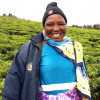IDH has been active in the tea sector for ten years. Over these years, we have been addressing core sustainable issues.
我们已经建立了横跨问题,从生活的工资和工作条件,性别问题,包括基于性别的暴力,对生活的收入和盈利能力的小农,气候变化和森林砍伐的合作伙伴关系。通过我们的合作伙伴关系,共同发展蓝图,我们正在一步在非洲和亚洲的著名产茶区可持续生产工作步骤,并在西欧和亚洲的可持续采购。
Over the recent years, large tea packers and producers have made a significant shift to becoming more open to pre-competitive collaboration, to be able to jointly tackle sustainability issues that cannot be dealt with as a single company. This allows IDH to step in and play its convening role to further address sustainability in the tea value chain. IDH is investing in pilots and innovations on the sector level, but also through partnerships with individual companies.
Through our work in East Africa, we are convening the industry to address complex sustainability issues. IDH is also addressing gender and gender-based violence issues in the Kenyan tea sector, through the multi-stakeholder Gender Empowerment Platform. In India, IDH works on domestic market transformation throughtrustea,收入提高的小茶农,并通过解决妇女和女童的安全改善的人在茶社区的生活。
In Rwanda, Tanzania and Vietnam, IDH focus is on smallholder inclusion and health and safety. In the South West Mau landscape, in Kenya, we work together with large tea plantations in the area to conserve and restore 60,000 hectares of forest.
Impact of COVID-19
茶producers across the globe have been greatly affected by COVID-19, mainly because of national lockdowns and social distancing policies. Export and import restrictions are creating uncertainty on the tea market, and producers are undertaking emergency response measures to prevent the spread of COVID-19 in tea communities.
找到更多
Living Wage and Working Conditions
After starting the journey towards a competitive and profitable Malawian tea sector where workers earn a living wage and smallholders are earn a living income, theMalawi Tea 2020coalition is making progress.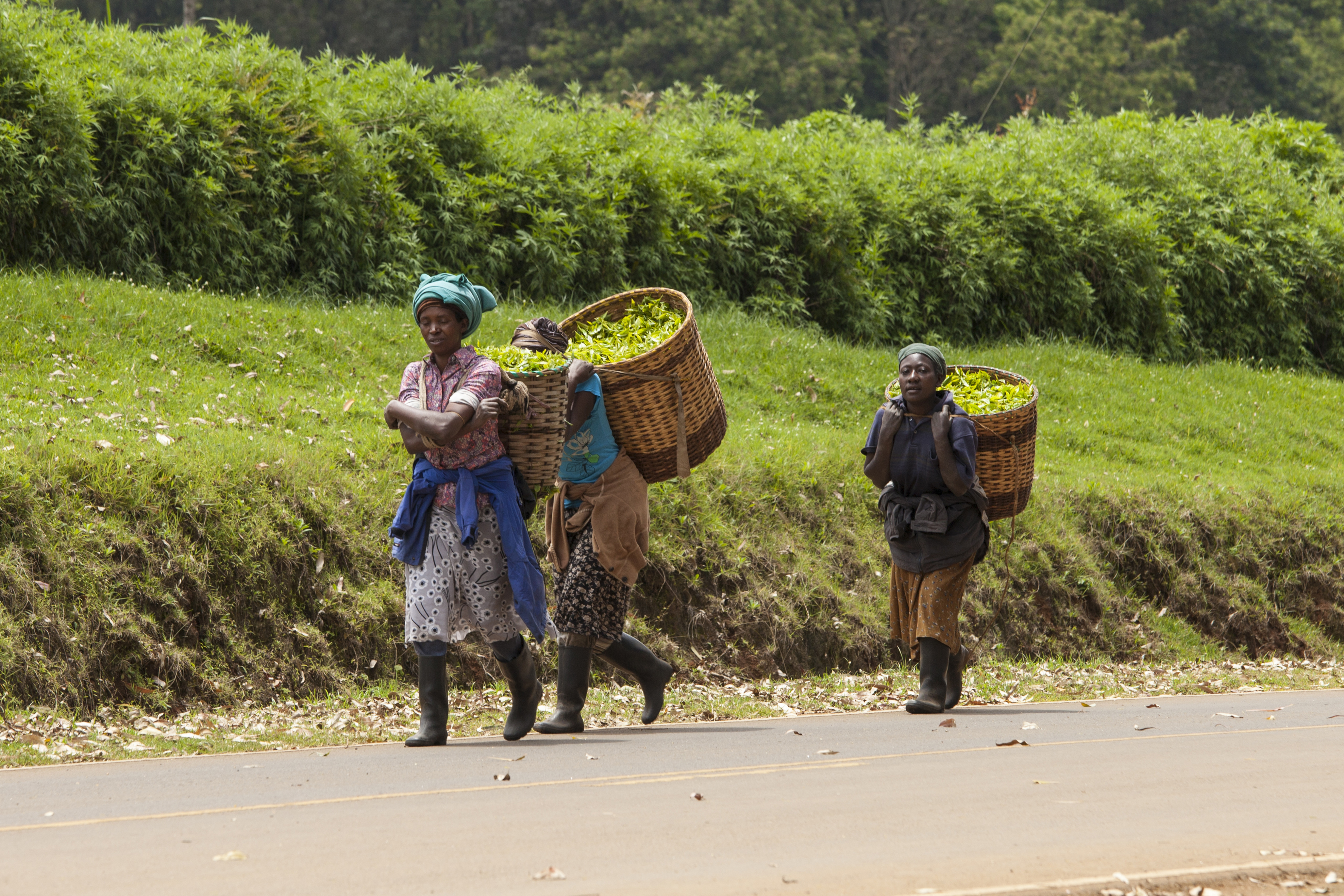 The coalition, which comprises companies all along the tea value chain including producers, retailers, unions, NGOs, and government agencies, has successfully narrowed the gap between current wages and a living wage. Since the October 2014 baseline, the gap has now been closed by 29%, which means that current take-home pay is at 66% of a living wage. As part of our work on revitalizing the industry, producer companies have invested over EUR 14 million in their businesses to improve the quality of their product. Through efforts of our CSO partners and the Tea Association of Malawi, workers have access to improved nutrition and housing. For more results, see ourannual progress report 2019.
The coalition, which comprises companies all along the tea value chain including producers, retailers, unions, NGOs, and government agencies, has successfully narrowed the gap between current wages and a living wage. Since the October 2014 baseline, the gap has now been closed by 29%, which means that current take-home pay is at 66% of a living wage. As part of our work on revitalizing the industry, producer companies have invested over EUR 14 million in their businesses to improve the quality of their product. Through efforts of our CSO partners and the Tea Association of Malawi, workers have access to improved nutrition and housing. For more results, see ourannual progress report 2019.
九月2019年,出版IDH的年代ustainable Procurement Kit(SPK),它允许公司评估其在行业支付最低生活工资的贡献。该SPK已试行在马拉维茶叶2020方案,是一个标准化的工具,可以扩大到其他原茶和部门。
“Only by understanding the impact of purchasing decisions on suppliers’ ability to pay a living wage, can we hope to create more sustainable procurement practices. The IDH Sustainable Procurement Kit aims to support buyers in this understanding. For example on the economic consequences for producers’ sourcing strategies. This will also help to better enable realistic and sustainable living wage targets to be set and met.”

Will Battle
年代enior sustainable procurement advisor, and former tea buyer
小农包容
IDH is working with its partners on addressing issues related to smallholder profitability, good agricultural practice and responsible use of pesticides. Through smallholder年代ervice Delivery Model(SDM) analyses, IDH gains a deeper understanding how services are provided to farmers and how to further improve these models making them future proof. Click on the countries to find out about IDH smallholder work in each geography.
In Tanzania, IDH and Unilever Tea Tanzania are working on the since 2014. The objective of the project is to enhance the livelihoods of smallholder farmers in the villages surrounding Unilever Tea Tanzania estates.
In Rwanda, IDH and The Wood Foundation Africa (TWFA) have worked together to strengthen the tea value chain until 2018. Together with the Mulindi and Shagasha smallholder tea farmers we focussed on green leaf quality and yield enhancement, capacity development and training, and certification, reaching over 8,000 farmers. For more insights, readour SDM analysis with The Wood Foundation Africa.
Malawi
In Malawi, as part of Malawi Tea 2020, we are working with the Ethical Tea Partnership to improve the incomes and livelihoods of tea smallholder farmers. There has been great progress in this program, through which almost 9,000 smallholder farmers have been reached through Farmer Field Schools (FFS). Data has shown that adoption of the good agricultural practices learned in the FFS has led to a yield increase of nearly 22% in that year and of 41% in the season after graduating. FFS farmers also had a higher percentage of green leaf rated as ‘good’ (73%) compared to non-FFS farmers (56%) in the year after graduation.
我们开始一个试点多期培训班项目small tea growers in Assam, India in 2019. This is building on IDH’s work on domestic market transformation in the Indian tea industry throughtrustea. The agri-entrepreneurs program provides a diverse set of services to small tea growers, including access to inputs, finance and diversification. The program is part of a multi-sector approach, together with the IDH spices and cotton programs in India and the Syngenta Foundation, to improve incomes of smallholder farmers in the region.
In Vietnam, IDH is working on health and safety issues that affect smallholder farmers. Through the establishment of an innovative model for responsible agrochemical management, the Agri-team model, around 8,000 farmers are provided with a proper set of agrochemicals, spraying services or monitoring farmers’ spraying activities. In 2020, IDH will engage in further sector convening through its role as co-chair of the Public-Private Partnership Task Force for Tea in Vietnam, together with Unilever and the Department of Crop Production, providing possibilities for further rollout of learnings from our earlier programs in Vietnam to the wider sector.Read more about the activities in Vietnam here.
Gender Equality and Empowerment

In 2016, IDH convened producers, technical experts, and civil society organizations under the Gender Empowerment Platform (GEP), to work on gender equality and empowerment in the Kenyan tea sector. Representing the majority of the companies in the Kenyan tea industry, the GEP has the ambitious goal to significantly reduce the occurrence of GBV, as well as to increase women’s empowerment in the Kenyan tea industry, by 2020.
有关在肯尼亚的GEP进度的更多信息,请阅读our 5-pager. We are also using our experience from Kenya to strengthen our work in the plantation sector in Malawi and India.
Domestic Transformation in India

trusteais an initiative co-founded by IDH, Hindustan Unilever, Tata Global Beverages, Wagh Bakri and civil society organizations, focusing on sustainable domestic market transformation in the Indian tea industry. Based on industry realities and globally accepted sustainability principles, the program advocates the implementation of a voluntary sustainability code, the trustea code, for the Indian domestic tea market. Read our publication年代tories from the Field, highlighting insights on improvements for factories, gardens, workers and small tea-growers brought about through thetrusteaprogram over the last six years.
直到2019年,trusteahas verified 608 million kg of tea, which is almost half (48%) of the total tea produced in India annually. With a new phase ahead, thetrustea可持续茶的基础已经建立,管理一天算一天,由新成立的在转向trustea可持续茶叶协会,多方利益相关者的身体。
Mitigation of Deforestation
IDH is working in the西南茂森林在肯尼亚to conserve and restore 60,000 hectares, as a crucial water tower to the tea industry. To date, we have built a strong coalition made up of the county governments, tea, energy and timber companies as well as a range of civil society and knowledge institutions. To conserve and restore the forest, James Finlay Kenya, Unilever Tea Kenya Ltd and the Kenya Tea Development Agency are contributing in this coalition. We have launched the Stawisha Mau Charitable Trust to ensure the program is sustained in the long run.
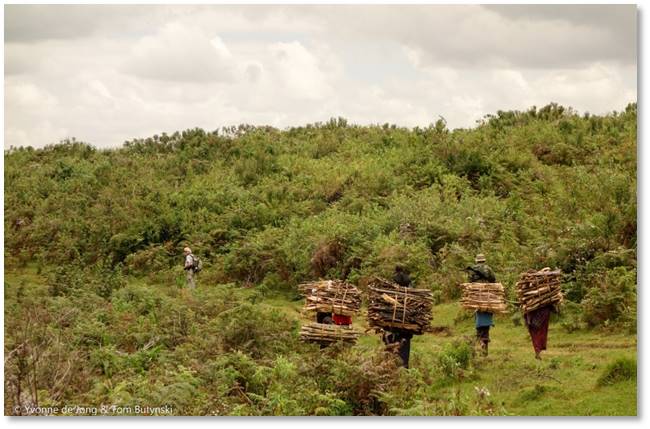
An外部评价published in May 2019 confirmed that IDH has successfully restored degraded forest. Compared to the reference period (2000-2014, before IDH interventions), the rate of forest degradation from 2014-2018 was 22.6% lower; forest regeneration was 22.7% higher; and net emissions from forest cover change were 89% lower.
In Malawi, we are currently scoping a landscape program together with the tea industry, to address deforestation and soil erosion in the Mount Mulanje area.

